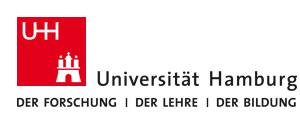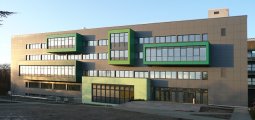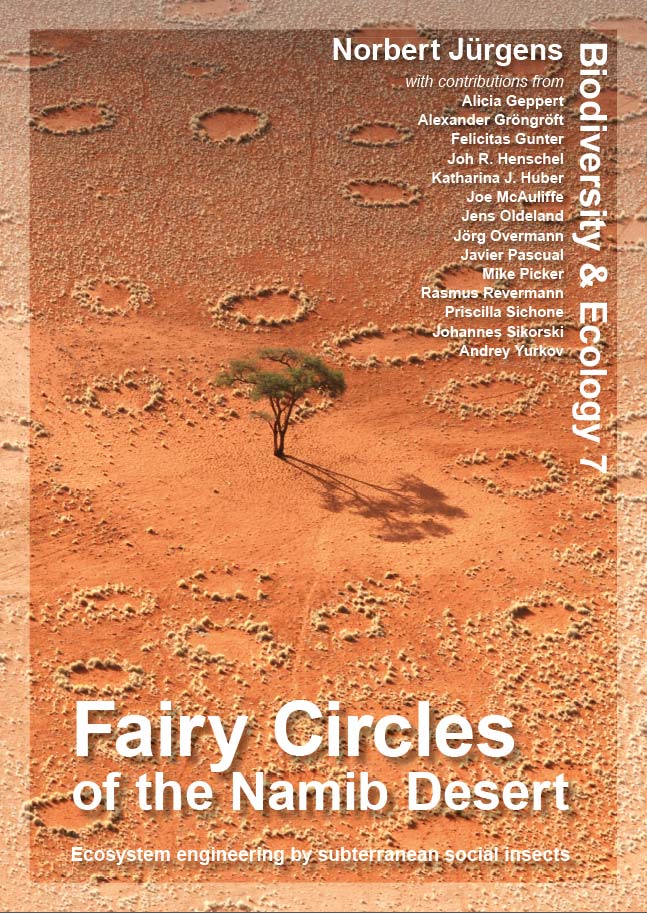You are here: >
Home >
Scient. NetworksScientific Networking
|
|
Scientific communication networking of scientists, research institutions and organisations on specific research topics provides an important platform
- for supporting the exchange of information,
- for managing joint efforts to identify relevant issues and research deficiencies, and
- for the transfer of relevant research results to decision makers to support measures for the sustainable utilisation of natural resources, biodiversity conservation and adaptation strategies with regard to ongoing discussions on climate change.
Biocenter Klein Flottbek and Botanical Garden, University of Hamburg, is renowned at the national and international level, for coordinating several important scientific networks on the subjects of "biodiversity" and "desertification".
|
|
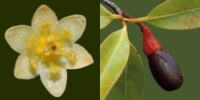 The International Lauraceae Working Group is a cooperative project by scientists all over the world, with the aim to extend and to preserve the knowledge about this floristically and ecologically most important family.
The International Lauraceae Working Group is a cooperative project by scientists all over the world, with the aim to extend and to preserve the knowledge about this floristically and ecologically most important family.
Contact:  Prof. Jens G. Rohwer Prof. Jens G. Rohwer
|
|
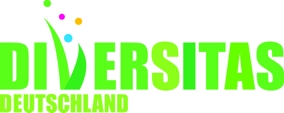
Diversitas Germany is a scientific network that identifies pressing problems with regard to safeguarding biodiversity and the sustainable utilisation of its goods and services. Diversitas Germany supports the implementation of the aims of DIVERSITAS and the UN Convention of Biological Diversity through the German National Committee on Global Change Research (NKGCF).
From 2003 to 2008, the coordination office of Diversitas Germany was at the Biocenter Klein Flottbek. In 2009, the coordination office has moved to the University of Ulm. Overview
|
|
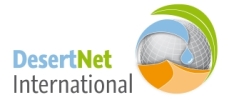 The international scientific network for research on desertification and sustainable development of arid regions (DesertNet International, DNI) is an NGO registered in Straßburg/Illkirch. This international initiative is based on the idea to provide a global network of scientists who are interested in the issue of desertification and who support the vision outlined in the declaration of DNI. The international scientific network for research on desertification and sustainable development of arid regions (DesertNet International, DNI) is an NGO registered in Straßburg/Illkirch. This international initiative is based on the idea to provide a global network of scientists who are interested in the issue of desertification and who support the vision outlined in the declaration of DNI.
DNI closely cooperates with the UN Convention on Combating Desertification (UNCCD) and its Committee on Science and Technology (CST). Moreover, DNI cooperates with national and international research institutes and networks as well as other institutions of the UN and the European Union
- by providing an international platform supporting scientific research for combating desertification at the global scale and
- as a think tank that enhances communication between political decision makers and scientific community.
Together with ICARDA, ICRISAT, JRC-IES and UNU-INWEH, did DNI organise the first scientific conference of the UNCCD in autumn 2009, parallel to the 9th conference of the parties (COP-9) in Buenos Aires, Argentina.
Contact:  Dr. Mariam Akhtar-Schuster Dr. Mariam Akhtar-Schuster
Overview
|
|
 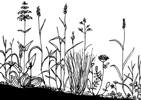
European Dry Grassland Group (EDGG)
The European Dry Grassland Group (EDGG) is a network of scientists and nature conservationists from different disciplines (ecology, botany, zoology, soil science, agriculture) who deal with dry grasslands, which are among the most diverse and most threatened habitats of Europe. EDGG was founded in summer 2008 at the annual conference of the German Arbeitsgruppe Trockenrasen in Kiel. gSince then, EDGG developed dynamically, became an official Working Group of the International Assocation for Vegetation Science (IAVS) in 2009, and meanwhile has more than 600 members from some 50 countries. EDGG is chaired by an Executive Committee consisting of five persons: Dr. Jürgen Dengler (Hamburg), Dr. Monika Janišová (Slowakia), Solvita Rūşina (Latvia), Stephen Venn (Finland) and Dr. Michael Vrahnakis (Greece).
The basic aims of EDGG are:
- to compile and to distribute information on research and conservation in dry grasslands beyond national borders and
- to stimulate active cooperation among dry grassland scientists (exchanging data, common data standards, joint projects)
Activities and services:
- European Dry Grassland Meetings: annual scientific conferences in changing locations throughout Europe
- EDGG Research Expeditions: international collaboration to sample high-quality field data from underrepresented dry grassland regions
- Bulletin of the European Dry Grassland Group: quarterly open access journal
- Homepage
- Mailing list
- Special Features on dry grassland-related topics in international journals
Regional subgroups:
Overview
|
|
 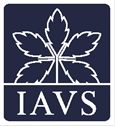 Global Index of Vegetation-Plot Databases (GIVD)
Global Index of Vegetation-Plot Databases (GIVD)
The GIVD, an international initiative within the International Association for Vegetation Science (IAVS), is an online metadatabase that provides information about vegetation-plot (relevé) databases from any vegetation type and biome worldwide. Presently more than 100 databases containing data of approx. 2.5 million plots are indexed.
Publication:
Dengler, J., Jansen, F., Glöckler, F., Peet, R. K., De Cáceres, M., Chytrý, M., Ewald, J., Oldeland, J., Finckh, M., Lopez-Gonzalez, G., Mucina, L., Rodwell, J. S., Schaminée, J. H. J., Spencer, N. (2011): The Global Index of Vegetation-Plot Databases (GIVD): a new resource for vegetation science. Journal of Vegetation Science 22: 582–597.
Contact:  Dr. habil. Jürgen Dengler, Dr. habil. Jürgen Dengler,  Dr. Manfred Finckh, Dr. Manfred Finckh,  Dr. Jens Oldeland Dr. Jens Oldeland
Overview
|
|
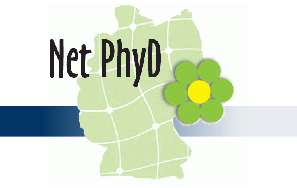
Network Phytodiversity Germany
The Netzwerk Phytodiversität Deutschlands e. V. (Network Phytodiversity Germany) is a scientific society, devoted to the study and conservation of plant diversity in Germany. Presently, it consists of 10 sections: floristic mapping (vascular plants), floristic mapping (bryophytes), chorology, analyses & methodology, IT tools: databases, IT tools: taxonomy, genebanks, trait databases, taxonomic reference lists, and vegetation databases.
The Sektion Taxonomische Referenzlisten (Section Taxonomic Reference Lists) (Coordination: Dr. Florian Jansen, Greifswald, and Dr. Florian Jansen, Greifswald, and  Dr. habil. Jürgen Dengler, Hamburg) aims at establishing uniform standards for taxonomic reference lists for all plant groups, which are an essential tool for connecting various data sources (in particular electronic databases). To this end, the Section brings together taxonomists and florists with users (e.g. vegetation scientists, authors of red lists, users of trait databases) and information scientists. Dr. habil. Jürgen Dengler, Hamburg) aims at establishing uniform standards for taxonomic reference lists for all plant groups, which are an essential tool for connecting various data sources (in particular electronic databases). To this end, the Section brings together taxonomists and florists with users (e.g. vegetation scientists, authors of red lists, users of trait databases) and information scientists.
Since March 2007, a first version of a comprehensive electronic reference list is freely available for download (GermanSL 1.0). This list will be updated and augmented continuously. (more) Overview
|
